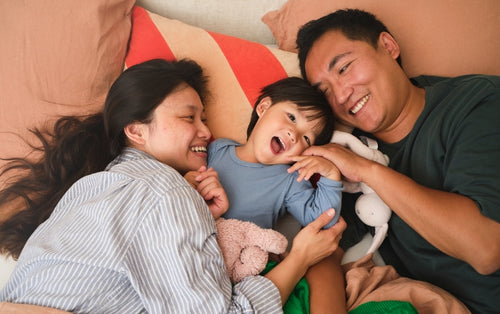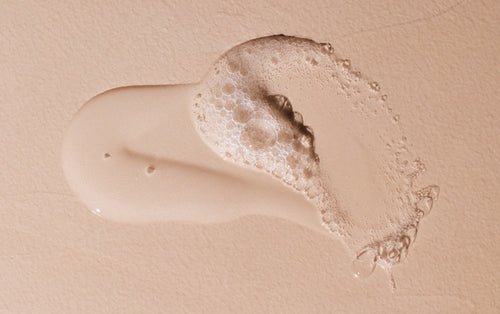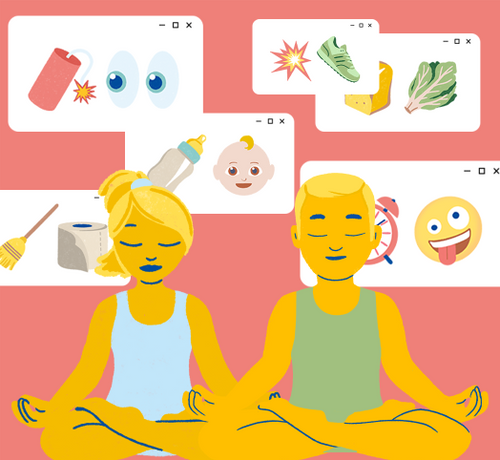Lack of sleep: a glaring gap between mothers and fathers.
40 minutes! On average, this is the sleep time per night that a woman loses after the birth of her baby, compared to 13 minutes for men, according to a study conducted by the University of Warwick*. Gentlemen, it's about time to balance this out!
Here’s more: according to the reported results, it would take about 6 years for new parents to regain the amount of sleep** they had before their first child.
And we’re talking about an average! A single-parent will not undergo the same fatigue as a couple who can share the sleepless nights. Breastfeeding can also be the cause of interrupted sleep (some babies wake up faster between breastfeeds) and in some cases, that of imbalanced sleep within the couple. Hot summer nights, having twins or a baby with eczema, reflux or night terrors – all these criteria can also cause the whole family to wake up more at night.
The importance of monitoring your sleep (and giving Mummy a break!)
While an expectant mother may have experienced sleeping disorders during her pregnancy, as soon as Baby is born, his well-being becomes THE priority for a parent. Often to the extent of putting your own well-being behind. “Monitoring your sleep and that of your newborn are some of the most difficult challenges during the first weeks of an infant's life,” says Dr. Rebecca Robbins, medical teacher at Harvard Medical School in this article. And this is a real challenge because when it comes to sleep, the question is not only whether we are getting enough of it, but also whether we are recovering properly from the lack of it.
Soon enough though, you’ll find out what sleep deprivation entails. Lack of energy, irritability, stress... And the list goes on in terms of short and long-term consequences. Too many of those sleepless nights can also increase the onset of postpartum depression.
Here’s a number that will make you want to change things: 89%
It’s the share of mothers who report sleeping less than 8h per night. Another 93% report that they are exhausted according to a study by “Motherly” website.
What are the solutions to get some rest?
Advice from experts and close ones will inevitably be: “Sleep when baby sleeps!” Well, that’s in theory. In practice, it happens to be more difficult: sometimes your sleeping slot turns out to be 20 minutes maximum and you may also find it difficult to fall asleep. Sometimes you’ll also want to tidy up a little, get ahead with your chores, eat, wash, and when comes the time to finally sit down, this is when Baby calls out for you… and off you go again! Sometimes you simply don't feel the fatigue or the need to recover.
“When I had my first child, I had a hard time 'forcing' myself to take naps whenever I could. Once my son was asleep, I felt the urge to be active and take a few minutes for myself, or even to watch television series… Every single time though, my body was telling me that I needed a break."
Pauline, mother of a 4-year-old boy and pregnant with her 2nd
"Short 'power' naps: do they help recover?"
Yes! Of course, although nothing competes with an 8 to 9 hours rest. But when you truly feel the need, a 10-20 minute nap (also called "power nap") can help recharge your batteries a little and reduce your level of stress. If you can't fall asleep quickly, don't give up! We’re not all equal when it comes to falling asleep. But with a little practice, your body will understand that it can relax and rest even for a short time only.
"I'm a single parent and I'm exhausted. Any tips?"
Obviously, logistics are not the same for a single mother or father with one or more children and the fatigue deficiency can be significant. If you have a toddler, if at all possible, try to delegate an occasional night to someone close, so you can recover. And do so without feeling guilty! The better off you are, the better off your child will be.
"I breastfeed my baby, any advice to get some rest at night?"
Again, breastfeeding can interfere with your sleep (especially if you have some concerns about breastfeeding or if your baby wakes up frequently). Here’s a few options to relieve you: your partner can help you by bringing your baby to you when he cries for a feed, and then put him back to bed when he’s done, so you won’t have to get up. If possible, also try to delegate all or part of the night to your partner, by expressing your milk for instance.
We can only encourage fathers to help lift their partner’s burden. For couples of the same sex, this is all the more true, as the distribution of roles already requires a better distribution of tasks.
#CloseTheGenderSleepGap
*according to a study published on the Sleep website in January 2019.
Study information:
David Richter, Michael D Krämer, Nicole K Y Tang, Hawley E Montgomery-Downs, Sakari Lemola, Long-term effects of pregnancy and childbirth on sleep satisfaction and duration of first-time and experienced mothers and fathers, Sleep, Volume 42, Issue 4, April 2019
**The Guardian – Article “New parents face up to six years of sleep deprivation, study says”



















